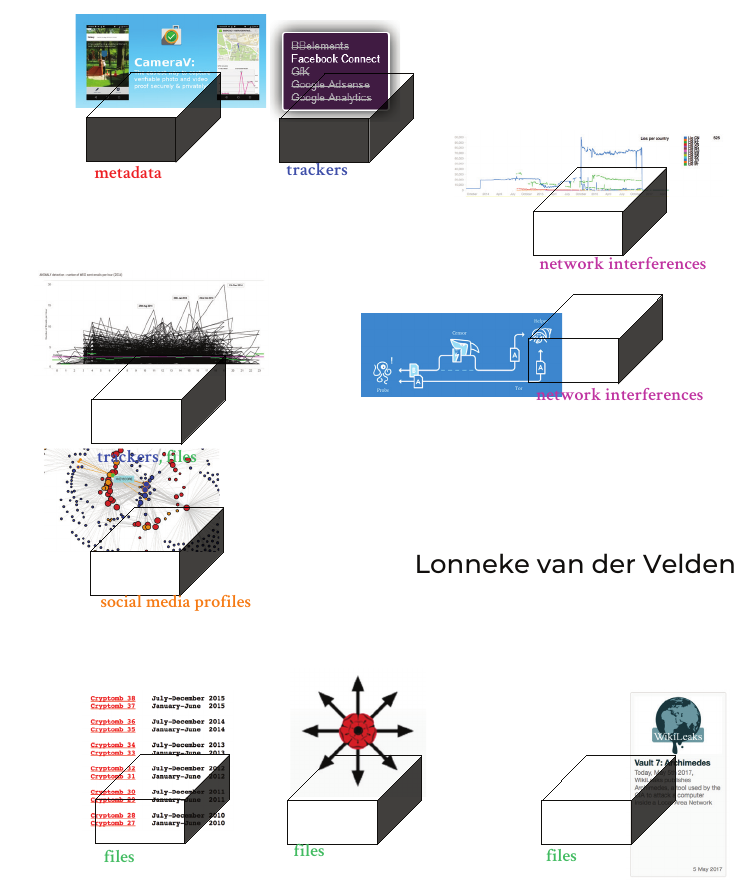Thursday February 8th, Lonneke van der Velden successfully defended her thesis Surveillance as public matter: Revisiting sousveillance through devices and leaks and is hereby awarded the title PhD title Dr. Please find a summary below.
Abstract
Our conceptual understanding of surveillance is continuously challenged by digital innovations. Projects that render (digital) surveillance visible and knowable become interesting analytic starting points. Since surveillance consists of technical and often secret processes, this ‘rendering visible’ inevitably requires a form of translation. This translation process is the main concern of this dissertation: How is surveillance made public? That question is tackled by combining an empirical inquiry on how surveillance is traced, made visible and understandable with a conceptual search for new vocabularies to address surveillance practices and countermeasures.
This thesis presents four case studies into four so-called ‘sousveillance’ projects: two counter-tracking devices for mobile phones and web browsing (InformaCam and Ghostery), and two leaks of surveillance repositories (WikiLeaks and the NSA disclosures). Inspired by Actor Network Theory (ANT), these projects are analysed through the notion of the socio-technical ‘device’ with a sensitivity to the materiality of publics. Specific focus is placed on the instruments through which surveillance is brought to the fore, the transformations that take place, the importance of the different settings, and the kinds of publics these configurations (could) enact.
The analysis, combining Surveillance Studies and ANT, shows that sousveillance has a contextually embedded, and publicly relevant, research dimension. In short, in tackling surveillance, the projects turn surveillance into a public resource for re-appropriation, into ‘public matter’. The conclusion outlines a research agenda into ‘surveillance publics’, publics that combine privacy practices with making things public. Lastly, the dissertation calls for more collaboration between academics and technical surveillance experts.
